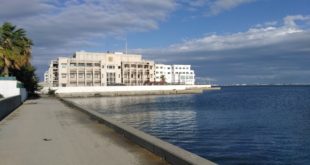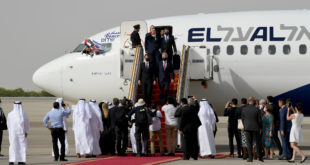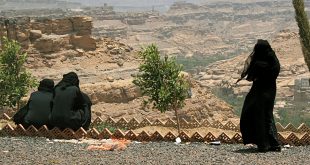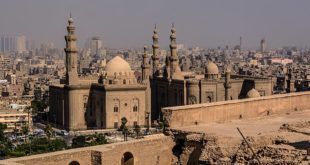Issue 30, summer/fall 2020 https://doi.org/10.70090/ASFS29DC Scroll down for the Arabic abstract. Modern universities have always been an embedded part of capitalism in political, economic, and cultural terms. Situated in this economic and political context, this study's overall task was to analyze and evaluate the critical literature reviews that have …
Read More »Arab World
Contemporary Arab and International Trends in Electronic Public Relations Studies (Arabic)
Issue 30, summer/fall 2020 https://doi.org/10.70090/HNES29CA Scroll down for English abstract. The study sought to provide a visualization of the development of Arab and international public relations research via the internet to determine the extent to which Arab research aligns with the global context, and find out whether social networks have …
Read More »The Impact of Social Networking Site Use on Social Capital and Happiness: A Field Study of Arab and Non-Arab Residents in the UAE (Arabic)
Issue 30, summer/fall 2020 https://doi.org/10.70090/SOA29SCH Scroll down for the Arabic abstract. As social networking sites (SNSs) grow in size across the United Arab Emirates, they are increasingly utilized as avenues for social partnership and sustainable development. These networks are also used as a means of creating social cohesion among the …
Read More »The Development of British Public Diplomacy in the Arab World
Issue 30, summer/fall 2020 https://doi.org/10.70090/AAR29BPD Abstract This paper attempts to map the major changes and developments of British public diplomacy in the Arab world. I argue here that the BBC and the British Council have greatly assisted British public diplomacy efforts and can be regarded as effective because exerting influence …
Read More »Risks and Crisis Communication Strategies in Dealing with the COVID-19 Pandemic: An Analytic and Critical View (Arabic)
Issue 30, summer/fall 2020 https://doi.org/10.70090/AEG29RCC Scroll down for the Arabic abstract. The media contributes a vital role in raising public health awareness within society, especially in times of disease outbreaks and epidemics. This role grows according of the possibilities and tools the media and communication entities possess to help it …
Read More »Precedented History: Arab Media Coverage of the Israeli – UAE – Bahrain Normalization Agreement
Issue 30, summer/fall 2020 https://doi.org/10.70090/RA29PHAM On September 16, 2020, U.S. president Donald Trump hosted the signing ceremony for the tripartite diplomatic normalization agreement, known as the Abraham Accords, between the United Arab Emirates (UAE), Bahrain, and Israel at the White House. The UAE is the third Arab country to declare …
Read More »BOOK REVIEW | OUR WOMEN ON THE GROUND
What was it like to be a woman over there?” Hannah Allam recounts being frequently asked of her time reporting from Iraq in the first essay of Our Women on the Ground. The collection of essays by female journalists, edited by Lebanese-British journalist Zahra Hankir, provides an account of “life …
Read More »Film Review | Watching “Us” in the Middle East
Issue 27, winter/spring 2019 https://doi.org/10.70090/MM27WUME “Us,” Jordan Peele’s newly released horror film, raises questions about American identity that will appear very different to viewers outside the United States. Peele has claimed that “Us” aims to hold up a mirror to American society, showing “us” how “we are our worst enemies.” …
Read More »Book Review | Preaching Islamic Renewal: Religious Authority and Media in Contemporary Egypt
Issue 27, winter/spring 2019 https://doi.org/10.70090/IVM27PIR The impacts of new media have long fascinated scholars of contemporary Muslim societies. Beginning from the premise that new media configurations portend the “fragmentation” of religious authority (Eickelman and Anderson 1999; Anderson 2003), such works often display a curious mix of euphoria and anxiety about …
Read More »Arab Millennials’ Articulation of Identity in Cyberspace: A study of three MENA YouTubers
Issue 27, winter/spring 2019 https://doi.org/10.70090/MA27QMIC Abstract This study investigates how three young Arab influencers negotiate their identities in cyberspace. Abdallah Al Maghlouth, Abdulrahman Mohammed, and Laila Hzaineh were selected for this study because they were listed among the top MENA influencers by the Arab Social Media Summit (2015) or by …
Read More » Arab Media & Society The Arab Media Hub
Arab Media & Society The Arab Media Hub










